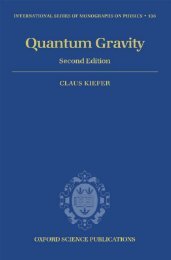- Page 2:
This page intentionally left blank
- Page 8:
APPROACHES TO QUANTUM GRAVITY Towar
- Page 12:
A Sandra
- Page 18:
viii Contents 11 String theory, hol
- Page 22:
Contributors J. Ambjørn The Niels
- Page 26:
xii List of contributors D. Oriti M
- Page 32:
Preface Quantum Gravity is a dream,
- Page 36:
Preface xvii are following in their
- Page 40:
Preface xix enormous amount of prog
- Page 48:
1 Unfinished revolution C. ROVELLI
- Page 52:
Unfinished revolution 5 wit of empi
- Page 56:
Unfinished revolution 7 In general
- Page 60:
Unfinished revolution 9 However, re
- Page 64:
Unfinished revolution 11 References
- Page 68:
2 The fundamental nature of space a
- Page 72:
The fundamental nature of space and
- Page 76:
The fundamental nature of space and
- Page 80:
The fundamental nature of space and
- Page 84:
The fundamental nature of space and
- Page 88:
The fundamental nature of space and
- Page 92:
The fundamental nature of space and
- Page 96:
Does locality fail at intermediate
- Page 100:
Does locality fail at intermediate
- Page 104:
Does locality fail at intermediate
- Page 108:
Does locality fail at intermediate
- Page 112:
Does locality fail at intermediate
- Page 116:
∫ Does locality fail at intermedi
- Page 120:
Does locality fail at intermediate
- Page 124:
Does locality fail at intermediate
- Page 128:
Does locality fail at intermediate
- Page 132:
Prolegomena to any future Quantum G
- Page 136:
Prolegomena to any future Quantum G
- Page 140:
Prolegomena to any future Quantum G
- Page 144:
Prolegomena to any future Quantum G
- Page 148:
Prolegomena to any future Quantum G
- Page 152:
Prolegomena to any future Quantum G
- Page 156:
Prolegomena to any future Quantum G
- Page 160:
Prolegomena to any future Quantum G
- Page 164:
Prolegomena to any future Quantum G
- Page 168:
Prolegomena to any future Quantum G
- Page 172:
Prolegomena to any future Quantum G
- Page 176:
Prolegomena to any future Quantum G
- Page 180:
Spacetime symmetries in histories c
- Page 184:
Spacetime symmetries in histories c
- Page 188:
Spacetime symmetries in histories c
- Page 192:
Spacetime symmetries in histories c
- Page 196:
Spacetime symmetries in histories c
- Page 200:
Spacetime symmetries in histories c
- Page 204:
Spacetime symmetries in histories c
- Page 208:
Spacetime symmetries in histories c
- Page 212:
Categorical geometry and the mathem
- Page 216:
Categorical geometry and the mathem
- Page 220:
Categorical geometry and the mathem
- Page 224:
Categorical geometry and the mathem
- Page 228:
Categorical geometry and the mathem
- Page 232:
Categorical geometry and the mathem
- Page 236:
Categorical geometry and the mathem
- Page 240:
7 Emergent relativity O. DREYER 7.1
- Page 244:
A (a) Emergent relativity 101 (b) (
- Page 248:
Emergent relativity 103 It is here
- Page 252:
Emergent relativity 105 spacetime c
- Page 256:
Emergent relativity 107 φ A B Fig.
- Page 260:
Emergent relativity 109 If, on the
- Page 264:
8 Asymptotic safety R. PERCACCI 8.1
- Page 268:
Asymptotic safety 113 field and the
- Page 272:
Asymptotic safety 115 For example,
- Page 276:
Asymptotic safety 117 If we choose
- Page 280:
Asymptotic safety 119 complex field
- Page 284:
Asymptotic safety 121 2 G ~ ~ 1.5 1
- Page 288:
Asymptotic safety 123 larger, and i
- Page 292:
Asymptotic safety 125 Dimensional a
- Page 296:
Asymptotic safety 127 References [1
- Page 300:
9 New directions in background inde
- Page 304:
New directions in background indepe
- Page 308:
New directions in background indepe
- Page 312:
New directions in background indepe
- Page 316:
New directions in background indepe
- Page 320:
New directions in background indepe
- Page 324:
New directions in background indepe
- Page 328:
New directions in background indepe
- Page 332:
New directions in background indepe
- Page 336:
New directions in background indepe
- Page 340:
New directions in background indepe
- Page 344:
Questions and answers 151 Quantum G
- Page 348:
Questions and answers 153 was that
- Page 352:
Questions and answers 155 causality
- Page 356:
Questions and answers 157 to hold),
- Page 360:
Questions and answers 159 of how gr
- Page 364:
Questions and answers 161 the actio
- Page 368:
Questions and answers 163 allow us
- Page 372:
Questions and answers 165 - A-F.Mar
- Page 380:
10 Gauge/gravity duality G. HOROWIT
- Page 384:
Gauge/gravity duality 171 strong an
- Page 388:
Gauge/gravity duality 173 decompose
- Page 392:
Gauge/gravity duality 175 Here l s
- Page 396:
Gauge/gravity duality 177 There is
- Page 400:
Gauge/gravity duality 179 these are
- Page 404:
Gauge/gravity duality 181 leading t
- Page 408:
Gauge/gravity duality 183 states to
- Page 412:
Gauge/gravity duality 185 [6] N. Be
- Page 416:
11 String theory, holography and Qu
- Page 420:
String theory, holography and Quant
- Page 424:
String theory, holography and Quant
- Page 428:
String theory, holography and Quant
- Page 432:
String theory, holography and Quant
- Page 436:
String theory, holography and Quant
- Page 440:
String theory, holography and Quant
- Page 444:
String theory, holography and Quant
- Page 448:
String theory, holography and Quant
- Page 452:
String theory, holography and Quant
- Page 456:
String theory, holography and Quant
- Page 460:
String theory, holography and Quant
- Page 464:
String field theory 211 no tools to
- Page 468:
String field theory 213 made an ins
- Page 472:
(d) Cyclicity: ∫ ⋆= (−1) G G
- Page 476:
String field theory 217 however, th
- Page 480:
String field theory 219 12.2.3 Outs
- Page 484:
String field theory 221 a review) g
- Page 488:
String field theory 223 similar com
- Page 492:
String field theory 225 this; the p
- Page 496:
String field theory 227 [11] T. G.
- Page 500:
Questions and answers • Q - D. Or
- Page 504:
Questions and answers 231 condition
- Page 508:
Part III Loop quantum gravity and s
- Page 514:
236 T. Thiemann (anti)commute. We s
- Page 518:
238 T. Thiemann Notice that in gene
- Page 522:
240 T. Thiemann spectrum of all the
- Page 526:
242 T. Thiemann order to avoid anom
- Page 530:
244 T. Thiemann We consider spaceti
- Page 534:
246 T. Thiemann Hence both gauge gr
- Page 538:
248 T. Thiemann that Ĉ(N) cannot b
- Page 542:
250 T. Thiemann [8] R. Brunetti, K.
- Page 546:
252 T. Thiemann [48] M. Bojowald, H
- Page 550:
254 E. Livine SU(2) gauge theory. T
- Page 554:
256 E. Livine space; η IJ is the f
- Page 558:
258 E. Livine However, in contrast
- Page 562:
260 E. Livine (i) Either we work wi
- Page 566: 262 E. Livine At the end of the day
- Page 570: 264 E. Livine projector at the end
- Page 574: 266 E. Livine for a surface S inter
- Page 578: 268 E. Livine This constraint is sa
- Page 582: 270 E. Livine we do not need the se
- Page 586: 15 The spin foam representation of
- Page 590: 274 A. Perez in classical general r
- Page 594: 276 A. Perez where M = ×R (for an
- Page 598: 278 A. Perez the Levi-Civita tensor
- Page 602: 280 A. Perez k Tr[ k (W p )] ✄ j
- Page 606: 282 A. Perez j j j k j k m k m j j
- Page 610: 284 A. Perez Here we studied the in
- Page 614: 286 A. Perez A spin foam representa
- Page 620: The spin foam representation of loo
- Page 624: Three-dimensional spin foam Quantum
- Page 628: Three-dimensional spin foam Quantum
- Page 632: Three-dimensional spin foam Quantum
- Page 636: Three-dimensional spin foam Quantum
- Page 640: Three-dimensional spin foam Quantum
- Page 644: Three-dimensional spin foam Quantum
- Page 648: Three-dimensional spin foam Quantum
- Page 652: Three-dimensional spin foam Quantum
- Page 656: Three-dimensional spin foam Quantum
- Page 660: Three-dimensional spin foam Quantum
- Page 664: The group field theory approach to
- Page 668:
The group field theory approach to
- Page 672:
The group field theory approach to
- Page 676:
The group field theory approach to
- Page 680:
The group field theory approach to
- Page 684:
The group field theory approach to
- Page 688:
The group field theory approach to
- Page 692:
The group field theory approach to
- Page 696:
The group field theory approach to
- Page 700:
The group field theory approach to
- Page 704:
The group field theory approach to
- Page 708:
Questions and answers 333 the holes
- Page 712:
Questions and answers 335 their vac
- Page 716:
Questions and answers 337 of some s
- Page 724:
18 Quantum Gravity: the art of buil
- Page 728:
Quantum Gravity: the art of buildin
- Page 732:
Quantum Gravity: the art of buildin
- Page 736:
Quantum Gravity: the art of buildin
- Page 740:
Quantum Gravity: the art of buildin
- Page 744:
Quantum Gravity: the art of buildin
- Page 748:
Quantum Gravity: the art of buildin
- Page 752:
Quantum Gravity: the art of buildin
- Page 756:
Quantum Gravity: the art of buildin
- Page 760:
Quantum Gravity: the art of buildin
- Page 764:
Quantum Regge calculus 361 is given
- Page 768:
Quantum Regge calculus 363 group. W
- Page 772:
Quantum Regge calculus 365 emanatin
- Page 776:
Quantum Regge calculus 367 We will
- Page 780:
Quantum Regge calculus 369 reason,
- Page 784:
Quantum Regge calculus 371 gravitat
- Page 788:
Quantum Regge calculus 373 where ξ
- Page 792:
Quantum Regge calculus 375 [4] J. W
- Page 796:
Quantum Regge calculus 377 [52] M.
- Page 800:
Consistent discretizations as a roa
- Page 804:
Consistent discretizations as a roa
- Page 808:
Consistent discretizations as a roa
- Page 812:
Consistent discretizations as a roa
- Page 816:
Consistent discretizations as a roa
- Page 820:
Consistent discretizations as a roa
- Page 824:
Consistent discretizations as a roa
- Page 828:
21 The causal set approach to Quant
- Page 832:
The causal set approach to Quantum
- Page 836:
The causal set approach to Quantum
- Page 840:
The causal set approach to Quantum
- Page 844:
The causal set approach to Quantum
- Page 848:
The causal set approach to Quantum
- Page 852:
The causal set approach to Quantum
- Page 856:
The causal set approach to Quantum
- Page 860:
The causal set approach to Quantum
- Page 864:
The causal set approach to Quantum
- Page 868:
The causal set approach to Quantum
- Page 872:
The causal set approach to Quantum
- Page 876:
The causal set approach to Quantum
- Page 880:
The causal set approach to Quantum
- Page 884:
The causal set approach to Quantum
- Page 888:
The causal set approach to Quantum
- Page 896:
22 Quantum Gravity phenomenology G.
- Page 900:
Quantum Gravity phenomenology 429 T
- Page 904:
Quantum Gravity phenomenology 431 t
- Page 908:
Quantum Gravity phenomenology 433 c
- Page 912:
Quantum Gravity phenomenology 435 p
- Page 916:
Quantum Gravity phenomenology 437 F
- Page 920:
Quantum Gravity phenomenology 439 l
- Page 924:
Quantum Gravity phenomenology 441 p
- Page 928:
Quantum Gravity phenomenology 443 w
- Page 932:
Quantum Gravity phenomenology 445 i
- Page 936:
Quantum Gravity phenomenology 447 s
- Page 940:
Quantum Gravity phenomenology 449 [
- Page 944:
Quantum Gravity and precision tests
- Page 948:
Quantum Gravity and precision tests
- Page 952:
Quantum Gravity and precision tests
- Page 956:
Quantum Gravity and precision tests
- Page 960:
Quantum Gravity and precision tests
- Page 964:
Quantum Gravity and precision tests
- Page 968:
Quantum Gravity and precision tests
- Page 972:
Quantum Gravity and precision tests
- Page 976:
Algebraic approach to Quantum Gravi
- Page 980:
Algebraic approach to Quantum Gravi
- Page 984:
Algebraic approach to Quantum Gravi
- Page 988:
Algebraic approach to Quantum Gravi
- Page 992:
Algebraic approach to Quantum Gravi
- Page 996:
Algebraic approach to Quantum Gravi
- Page 1000:
Algebraic approach to Quantum Gravi
- Page 1004:
Algebraic approach to Quantum Gravi
- Page 1008:
Algebraic approach to Quantum Gravi
- Page 1012:
Algebraic approach to Quantum Gravi
- Page 1016:
Algebraic approach to Quantum Gravi
- Page 1020:
Algebraic approach to Quantum Gravi
- Page 1024:
Algebraic approach to Quantum Gravi
- Page 1028:
25 Doubly special relativity J. KOW
- Page 1032:
Doubly special relativity 495 DSR t
- Page 1036:
Doubly special relativity 497 On th
- Page 1040:
Doubly special relativity 499 some
- Page 1044:
Doubly special relativity 501 [x 0
- Page 1048:
Doubly special relativity 503 that
- Page 1052:
Doubly special relativity 505 can b
- Page 1056:
Doubly special relativity 507 scale
- Page 1060:
26 From quantum reference frames to
- Page 1064:
From quantum reference frames to de
- Page 1068:
From quantum reference frames to de
- Page 1072:
From quantum reference frames to de
- Page 1076:
From quantum reference frames to de
- Page 1080:
From quantum reference frames to de
- Page 1084:
From quantum reference frames to de
- Page 1088:
From quantum reference frames to de
- Page 1092:
From quantum reference frames to de
- Page 1096:
From quantum reference frames to de
- Page 1100:
Lorentz invariance violation & its
- Page 1104:
Lorentz invariance violation & its
- Page 1108:
Lorentz invariance violation & its
- Page 1112:
Lorentz invariance violation & its
- Page 1116:
Lorentz invariance violation & its
- Page 1120:
Lorentz invariance violation & its
- Page 1124:
Lorentz invariance violation & its
- Page 1128:
Lorentz invariance violation & its
- Page 1132:
Lorentz invariance violation & its
- Page 1136:
Lorentz invariance violation & its
- Page 1140:
Generic predictions of quantum theo
- Page 1144:
Generic predictions of quantum theo
- Page 1148:
Generic predictions of quantum theo
- Page 1152:
Generic predictions of quantum theo
- Page 1156:
Generic predictions of quantum theo
- Page 1160:
Generic predictions of quantum theo
- Page 1164:
Generic predictions of quantum theo
- Page 1168:
Generic predictions of quantum theo
- Page 1172:
Generic predictions of quantum theo
- Page 1176:
Generic predictions of quantum theo
- Page 1180:
Generic predictions of quantum theo
- Page 1184:
Questions and answers • Q - L. Cr
- Page 1188:
Questions and answers 573 frame. Ju
- Page 1192:
Questions and answers 575 - A - J.
- Page 1196:
Questions and answers 577 where thi
- Page 1200:
Questions and answers 579 would all
- Page 1204:
Index 581 cosmology, 26, 155, 184,
- Page 1208:
Index 583 emergent, 99, 109, 163, 1


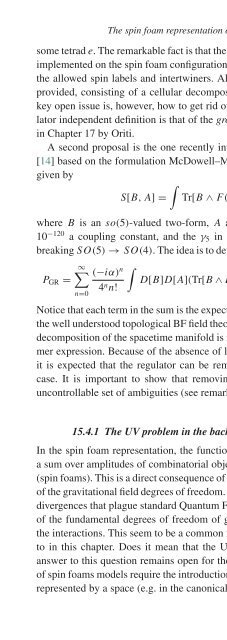
![arXiv:1001.0993v1 [hep-ph] 6 Jan 2010](https://img.yumpu.com/51282177/1/190x245/arxiv10010993v1-hep-ph-6-jan-2010.jpg?quality=85)
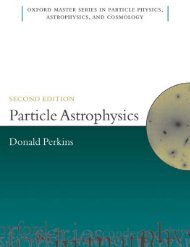
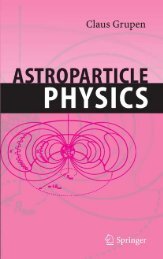
![arXiv:1008.3907v2 [astro-ph.CO] 1 Nov 2011](https://img.yumpu.com/48909562/1/190x245/arxiv10083907v2-astro-phco-1-nov-2011.jpg?quality=85)
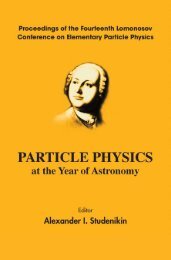
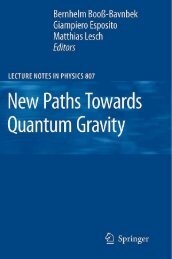
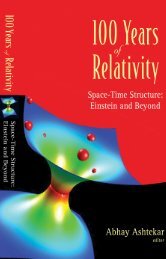
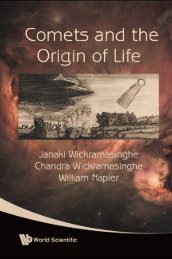
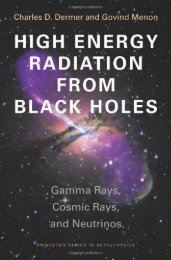
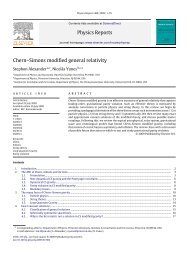
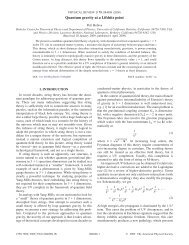
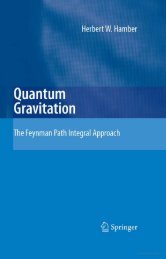
![arXiv:1002.4928v1 [gr-qc] 26 Feb 2010](https://img.yumpu.com/41209516/1/190x245/arxiv10024928v1-gr-qc-26-feb-2010.jpg?quality=85)
![arXiv:1206.2653v1 [astro-ph.CO] 12 Jun 2012](https://img.yumpu.com/39510078/1/190x245/arxiv12062653v1-astro-phco-12-jun-2012.jpg?quality=85)
